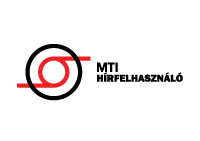Diesel buses can still be put into service in Siófok next year, but from 2022 only electric buses will be available.
In 47 Hungarian settlements, only electric buses could be put into circulation from 2022. If the population situation of the settlements does not change drastically, then Dunakeszi, among others, Siofok and Szentendre can also prepare for the ban on diesel buses.
Within the framework of the Green Bus program, from 2022 only electric buses can be put into operation in settlements with a population of more than 25,000, as a result, within 10 years, every second bus can be electric-powered - László Palkovics explained one of the points of the government's climate protection program.
MTI stands for:
The government adopted a climate protection action plan this week, creating a program to ensure that by 2030, 90 percent of the electricity produced in Hungary is carbon dioxide-free, Prime Minister Viktor Orbán announced in his annual review speech in Budapest on Sunday.
The prime minister emphasized that serious steps must be taken to protect what they have achieved, "the threat of the climate crisis, demographic decline and ominous shadows are gathering over the European economy as well."
He sees that "climate protection has become a political fashion", and a lot of empty talk degrades the seriousness of the matter. It is time to act instead of talking, he said.
He noted: it can be seen from the climate protection program that they believe that in 2030 this will still be their responsibility.
He explained: from July 1, they will begin to eradicate illegal landfills and punish polluters. The sale of single-use plastics will be banned, glass and plastic bottles and metal cans will be returned, he listed. He added: they protect the rivers from waste coming here from abroad.
Viktor Orbán addressed it: they will take strict action against multinational companies operating in Hungary, requiring them to use environmentally friendly technologies. In addition, the renewable energy production of small and medium-sized enterprises will be supported with HUF 32 billion over the next two years.
He said: ten trees will be planted for every newborn, and by 2030, the country's area covered by forests will increase to 27 percent. In the next 10 years, the capacity of solar power plants will increase sixfold. They will support the appearance and use of cheap electric cars, and from 2022, only electric buses will be allowed in urban traffic, he said.
He emphasized: the Green Government Bond will be introduced, and the government undertakes to use the money from this only for climate-friendly programs.
The European Investment Bank is also helping the Hungarian climate targets
Hungary's National Energy and Climate Plan clearly shows our country's commitment to adapting to climate change, one of the important elements of which is the greening of transport, including the environmentally friendly conversion of public transport, said Minister of Innovation and Technology László Palkovics with Lilyana Pavlova, Vice President of the European Investment Bank (EIB). on Thursday, at a meeting in Budapest, about which the Ministry of Innovation and Technology (ITM) informed MTI.
At the meeting, the head of the department welcomed the transformation of the EIB into a green bank and emphasized that incentive-type investments are essential for the implementation of the 2050 climate goals supported by Hungary and the European Green Agreement.
The estimated cost of achieving climate neutrality in Hungary by 2050 is around HUF 50,000 billion. A significant part of the necessary investments must be realized with the investment of private capital, in the mobilization of which, in addition to EU and national subsidies, the European Investment Bank also plays a significant role, emphasized László Palkovics.
According to the plans, by 2026, half of the EIB's total lending can be used in projects related to climate change. Based on the investment required to achieve the EU's climate goals, the bank can spend 33 billion euros annually on green financing between 2021 and 2030.
László Palkovics highlighted the support and financing contract between the European Investment Bank and Volán Buszpark Kft. as an example to be followed, which, by facilitating the partial replacement of bus service providers' vehicles, contributes to significantly less harmful substances entering the air.
The minister emphasized that transport is one of the most critical sectors in terms of climate goals, in which greenhouse gas emissions are constantly increasing. That is why the government adopted the Green bus program, the cornerstone of which is to support the rise of alternative drivetrain and environmentally friendly vehicles.
 As part of the Green Bus program, vehicles that are more than ten years old in public transport will be replaced by modern, environmentally friendly buses, with 60 percent of them being domestically produced. As part of the new national bus strategy, the government will provide HUF 36 billion in subsidies in the coming years, mainly for the purchase of electric buses for settlements with a population of more than 25,000.
As part of the Green Bus program, vehicles that are more than ten years old in public transport will be replaced by modern, environmentally friendly buses, with 60 percent of them being domestically produced. As part of the new national bus strategy, the government will provide HUF 36 billion in subsidies in the coming years, mainly for the purchase of electric buses for settlements with a population of more than 25,000.
In addition to achieving the national energy and climate policy goals, the renewal of the vehicle fleet also contributes to the improvement of the local quality of life by increasing the service level and reducing air pollution on a large scale, explained László Palkovics.
422 total views, 3 today
422 total views, 3 today










